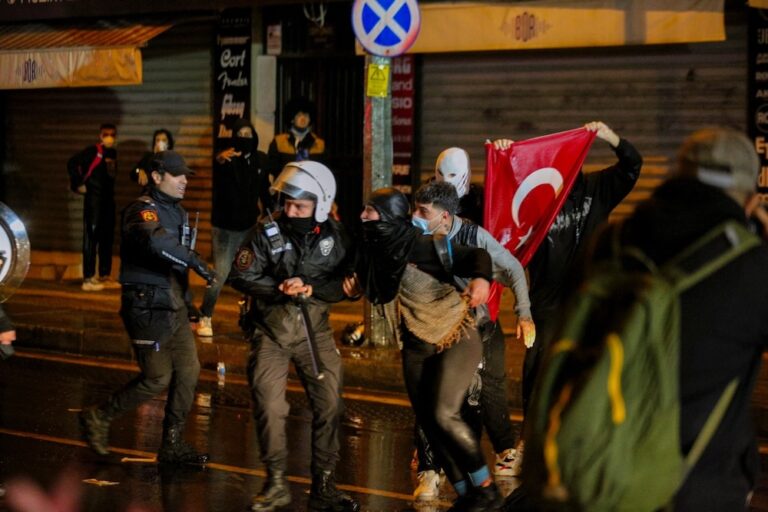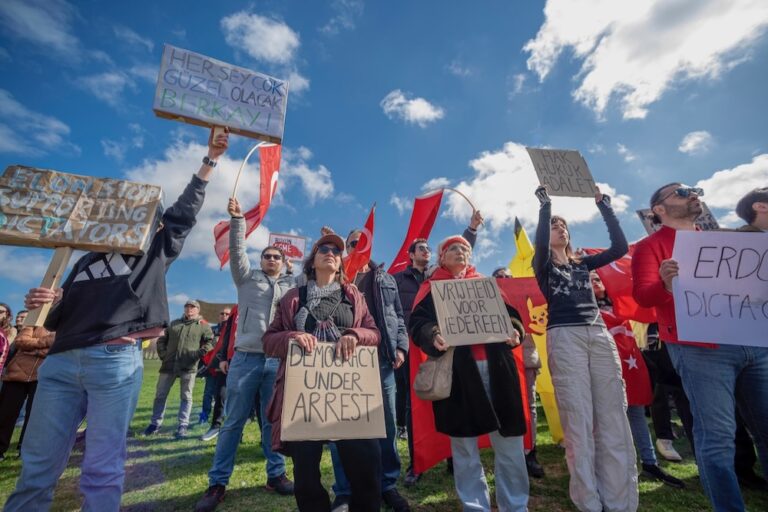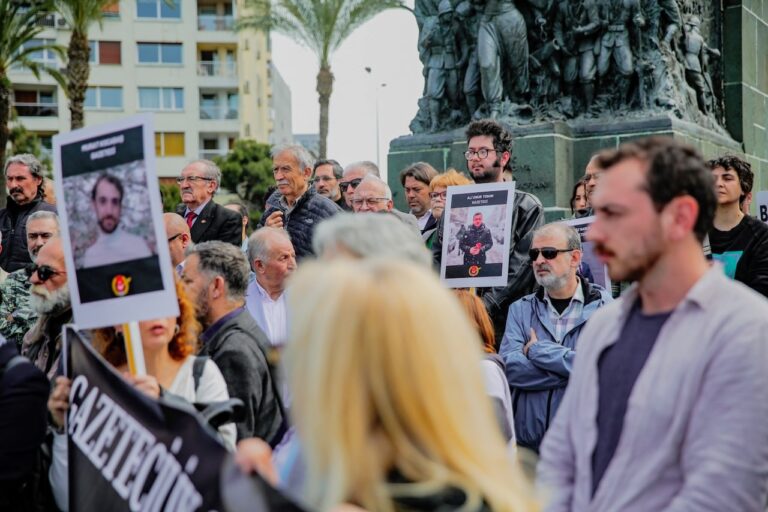Pınar Selek is facing trial on charges she has already been acquitted of three times. She is accused of involvement in an explosion at the Istanbul Spice Bazaar in 1998. Commentators believe that Selek's prosecution is linked to her work researching Kurdish issues and to contact with the banned Kurdish Workers’ Party.
UPDATE: Selek’s trial rescheduled to consider recusal (Bianet, 13 December 2012).
(WIPC/IFEX) – Writer, sociologist and feminist, Pınar Selek, is yet again facing trial on charges she has already been acquitted of an astounding three times. If found guilty, she faces life in prison with no chance of parole. The PEN International Writers in Prison Committee is seriously concerned that Selek is being subjected to a campaign of judicial harassment as a means of penalising her for her long standing support for and work on minority groups in Turkey. Selek fled Turkey a number of years ago as a result of the charges she is still facing, and cannot return to the country and resume her work due to the threat of arrest and detention.
Selek is accused of involvement in an explosion at the Istanbul Spice Bazaar in 1998, a tragedy that led to the deaths of seven people and injuries to 127 others. She was arrested in July 1998, and then freed two and a half years later after a team of experts concluded that the explosion had not been caused by a bomb, but by the accidental ignition of a gas cylinder. Despite these findings, the case against Selek and her co-defendants continued, and in December 2005 a new trial was opened against her. This trial ended with an acquittal six months later in June 2006.
In March 2009, the Court of Appeals requested a review of the case and reversed the acquittal. This went to consideration, and in May 2009 Selek was acquitted for a second time. In February 2010, the Court of Appeals objected again, and sent the case for review once more. The lower court refused to conduct a review on the grounds that the acquittal was legitimately and fairly given, and upheld Selek’s acquittal in February 2011 for a third time. However, at a 22 November 2012 hearing, the lower court decided to drop its refusal and proceed with reopening the trial against Selek on grounds that the refusal had been ‘contrary to procedure’. The trial is set to be reopened on 14 December 2012, with all five suspects being tried in absentia.
Commentators believe that the renewed prosecution of Selek is linked to her work as a sociologist researching Kurdish issues in the mid-to-late 1990s, and to contact with the banned Kurdish Workers’ Party (PKK). According to PEN sources, no evidence has been presented that shows Selek to have been a member of the PKK or to have engaged in violent activities. It is widely believed that she is being pursued through the courts as a means of penalising her for her legitimate research and commentary. These concerns are intensified by the allegations that Selek, during her imprisonment from 1998-2000, suffered torture under investigation in an attempt to make her confess to the charges.
WHAT OTHER IFEX MEMBERS ARE SAYING:
Selek’s case reopens for life sentence (Bianet, 22 November 2012)
“The court overturned its own verdict. This is exceptional in the history of law. The court appealed its own verdict,” Yasemin Öz, advocate of Pınar Selek, told Bianet. The ruling was announced by an auxiliary judge at a hearing in an Istanbul criminal court where none of the five defendants pending trial were present. Defendant advocate Bayram Belen protested the ruling, saying that the court made a procedural error. “The criminal court has the option to either amend according to the appeals court’s rule or resist its previous decision.” Saying that the ruling confirmed the appeal court’s decision, the criminal court rejected Belen’s objection and asked the attorney Nuri Ahmet Saraç to pronounce his claims. “This is a new situation. I am shocked,” the attorney said and reiterated his previous claims, charging Selek and Özktürk with life sentences. Advocates of the defendants asked the auxiliary judge for an extension as they said the ruling was “unexpected.”
Click here to read Bianet’s article about an evening in support of Pınar Selek.


